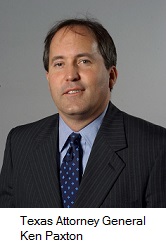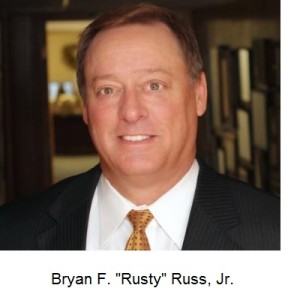Yesterday’s bad news from the State Bar of Texas may not be the last for Texas Attorney General Ken Paxton. On Saturday, I filed a separate bar grievance against him for violating state securities laws.
 I wasn’t planning to make the grievance public so early, and my decision to file it had surprisingly little to do with Ken Paxton himself (more on that below). That said, I now think there is a decent chance that the bar will act on the grievance.
I wasn’t planning to make the grievance public so early, and my decision to file it had surprisingly little to do with Ken Paxton himself (more on that below). That said, I now think there is a decent chance that the bar will act on the grievance.
Back in 2014, Erica Gammill of the Texas Coalition on Lawyer Accountability filed a grievance against Mr. Paxton for violating state securities laws, but the state bar dismissed the complaint without so much as an investigation. Less than a year later, however, a Collin County grand jury indicted Mr. Paxton for the same violation that was named in the 2014 bar grievance.
That begs a question: if the Texas Rangers, special prosecutors, and grand jurors found enough evidence to support a criminal charge, how can the state bar plausibly claim that there is no reason to investigate? Particularly when the criminal charge must be proved beyond a reasonable doubt, while a disciplinary charge must only be proved by the lower “preponderance of the evidence” standard? The grievance that I filed on Saturday asks that very question.
If you’ve followed this blog for any length of time, then you know that I’ve criticized the bar harshly for its susceptibility to political influence. The state bar routinely protects politically-connected lawyers. In Mr. Paxton’s case, however, the political tide appears to have turned against him sufficiently to warrant at least one investigation, and that leads me to believe the bar may finally be willing to investigate Mr. Paxton for the securities violations, albeit belatedly.
This could create a real conundrum for Mr. Paxton. When faced with interrogatories or deposition questions from state bar prosecutors, Mr. Paxton could certainly assert his Fifth Amendment rights and refuse to answer on the grounds that he might incriminate himself. But a disciplinary charge is a civil matter, and that distinction is critical. In a civil case, unlike a criminal case, the jury or hearing panel may conclude that Mr. Paxton’s refusal to testify is evidence of his guilt.
In other words, if Mr. Paxton refuses to answer questions from the state bar, he will greatly increase his chances of getting suspended or disbarred.
THE REAL REASON FOR THE LATEST BAR GRIEVANCE
So what prompted me to file the grievance against Mr. Paxton? On BoogerCountyMafia.com, I presented unequivocal evidence that two lawyers in Robertson County swindled more than $1 million worth of oil and gas interests from their rightful owners. As explained on that site, one of the lawyers is Bryan F. “Rusty” Russ, Jr., who served for 16 years on one of the state bar’s local grievance committees. In other words, Mr. Russ is a politically-connected lawyer.
 I won’t rehash all the details from BoogerCountyMafia.com here, but the state bar ended up filing charges against me after repeatedly refusing to act against Mr. Russ (even when, for example, I presented evidence that Mr. Russ’s was trying to represent one client’s interests against another’s in the same case).
I won’t rehash all the details from BoogerCountyMafia.com here, but the state bar ended up filing charges against me after repeatedly refusing to act against Mr. Russ (even when, for example, I presented evidence that Mr. Russ’s was trying to represent one client’s interests against another’s in the same case).
As part of my defense, I obtained deposition transcripts proving unequivocally that Mr. Russ and his partner, James H. “Jimmie” McCullough, had swindled the oil and gas interests. The state bar immediately opened its own investigation, sending investigators to obtain records from Robertson County and even from the FBI office in Waco.
The state bar then told me that it wanted to settle the case against me so it could pursue the case against Mr. Russ and Mr. McCullough. I was worn out and flat broke at that point, so I reluctantly agreed to take a reprimand (you can read all about it on the website) on the premise that the state bar would finally pursue charges against Mr. Russ and Mr. McCullough.
That decision is one of the biggest regrets of my professional career. A few weeks ago, I learned that the state bar reneged, refusing to file the charges against Mr. Russ and Mr. McCullough even after admitting that they had perpetrated a seven-figure fraud. I suppose someone else could file another grievance against Mr. Russ and Mr. McCullough, but I’m tired of banging my head against that wall.
So, back to Mr. Paxton. I filed the grievance against him to see just how far the bar is willing to go in order to protect a politically-connected lawyer. Now that Mr. Paxton has been politically wounded, it looks like the bar may be willing to pursue the charges that it rejected in 2014. But if it does pursue those charges, you can rest assured that the decision will have been made on the changing politics and public perception of Mr. Paxton, not the merits.
I wish there were more honest and competent lawyers in this state.
Well don’t look for honesty in Robertson co. No body cares , afraid, it starts at the top and runs down hill .
That’s dead wrong.
A www come on Ty why do u always delete my post??? Do I intimidate you my little booger county bitch???